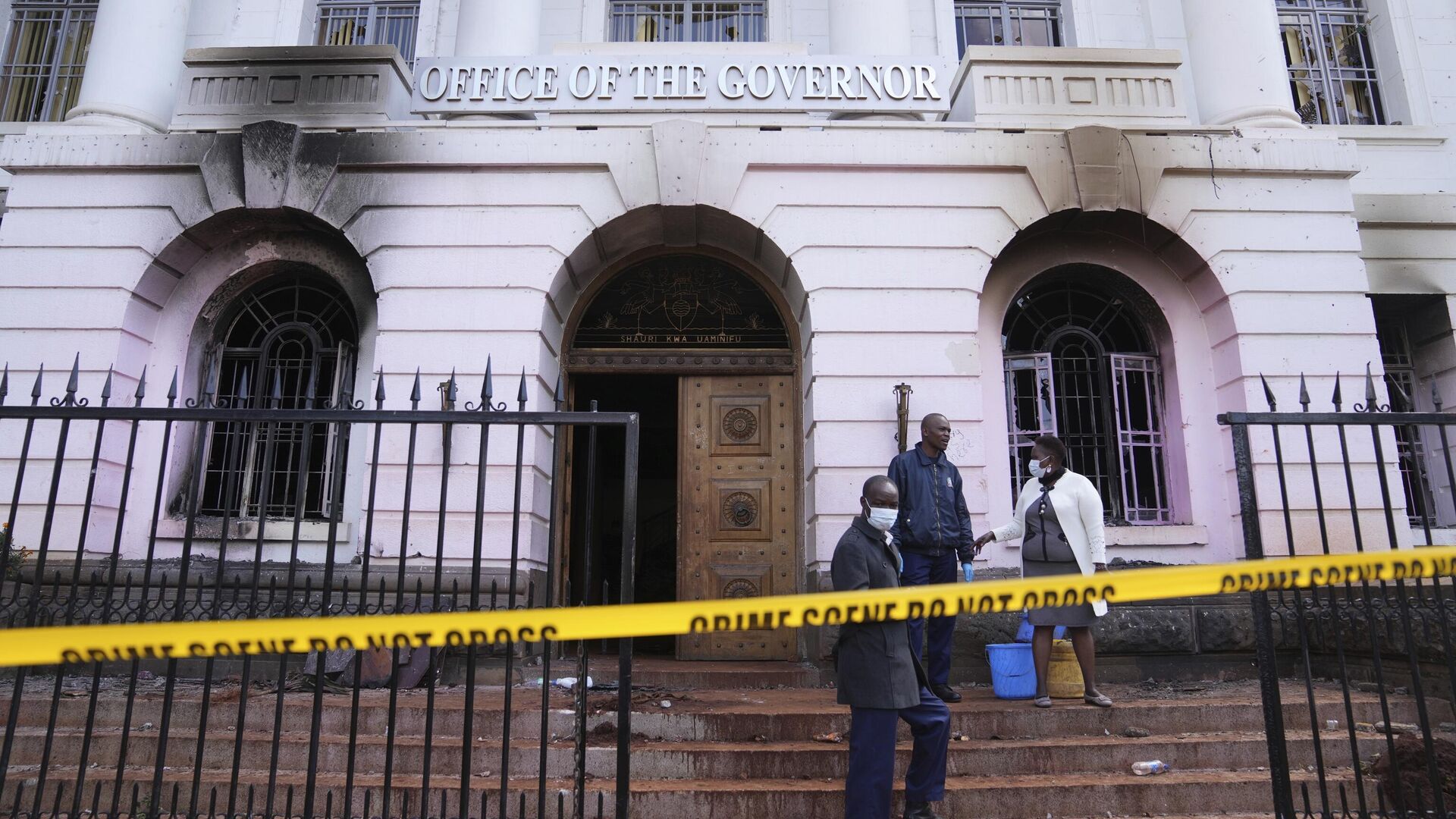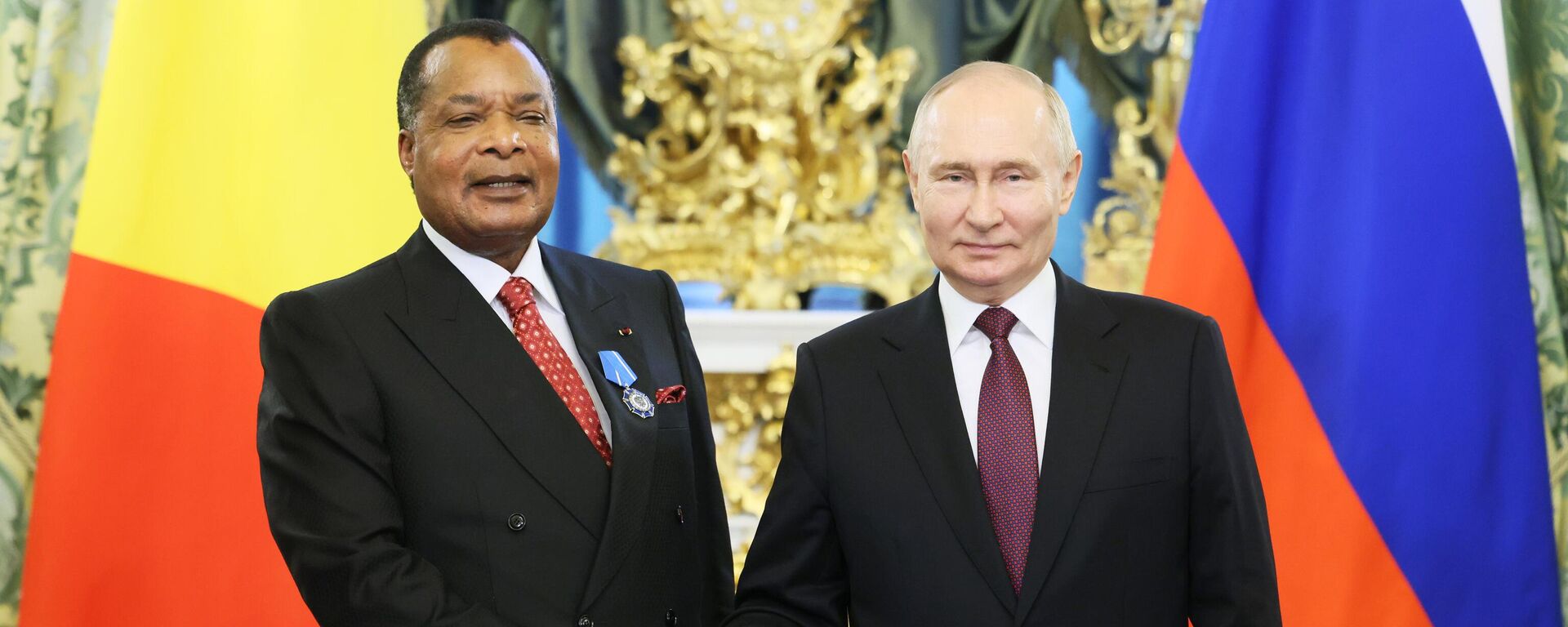https://en.sputniknews.africa/20240628/imf-mostly-to-blame-for-current-bedlam-in-kenya-member-of-local-human-rights-commission-believes-1067278580.html
IMF Mostly to Blame for Current Bedlam in Kenya, Member of Local Human Rights Commission Believes
IMF Mostly to Blame for Current Bedlam in Kenya, Member of Local Human Rights Commission Believes
Sputnik Africa
Kenyan authorities initiated tax reforms amid demands from the International Monetary Fund (IMF) to reduce the budget deficit from 5.7% to 3.3% of GDP. This... 28.06.2024, Sputnik Africa
2024-06-28T13:39+0200
2024-06-28T13:39+0200
2024-07-01T12:55+0200
opinion
africa insight
kenya
international monetary fund (imf)
sputnik africa
east africa
protests
brics
debt
world bank
https://cdn1.img.sputniknews.africa/img/07e8/06/1c/1067279486_0:320:3072:2048_1920x0_80_0_0_b6b095d0f1e19185e84fa567e960dd9d.jpg
The IMF, along with the executive and legislative branches of the government, hold the most significant responsibility for the current turmoil in Kenya, Annet Nerima, Program Manager, Inclusion and Political Justice at the Kenya Human Rights Commission, told Sputnik Africa.Kenya's public debt stands at 68% of GDP, surpassing the "tipping point" level of 55% advised by the IMF and the World Bank. What alternatives does the state have to address this situation besides increasing taxes?One proposed measure for the current government is to reduce the size of parliament and limit current spending, which would free up resources for the country's development, Nerima pondered.The current situation in Kenya is another link in the chain of strict conditions imposed by international financial institutions on African countries. These organizations are major donors to the economies of the continent and hence benefit from imposing such stringent requirements on African nations, explained the speaker.However, the situation is not entirely pessimistic, as there are alternatives to Western-backed financial institutions. One such alternative is BRICS.
https://en.sputniknews.africa/20240627/russia-brics-provide-great-support-for-emancipation-of-african-countries-historian-says-1067267243.html
kenya
east africa
Sputnik Africa
feedback@sputniknews.com
+74956456601
MIA „Rossiya Segodnya“
2024
Christina Glazkova
https://cdn1.img.sputniknews.africa/img/07e7/0b/07/1063380906_0:0:673:674_100x100_80_0_0_79628b4d0cd9f29291a57aa13bbf9e7a.jpg
Christina Glazkova
https://cdn1.img.sputniknews.africa/img/07e7/0b/07/1063380906_0:0:673:674_100x100_80_0_0_79628b4d0cd9f29291a57aa13bbf9e7a.jpg
News
en_EN
Sputnik Africa
feedback@sputniknews.com
+74956456601
MIA „Rossiya Segodnya“
Sputnik Africa
feedback@sputniknews.com
+74956456601
MIA „Rossiya Segodnya“
Christina Glazkova
https://cdn1.img.sputniknews.africa/img/07e7/0b/07/1063380906_0:0:673:674_100x100_80_0_0_79628b4d0cd9f29291a57aa13bbf9e7a.jpg
africa insight, kenya, international monetary fund (imf), sputnik africa, east africa, protests, brics, debt, world bank, taxes, economy, reforms, alternative currency
africa insight, kenya, international monetary fund (imf), sputnik africa, east africa, protests, brics, debt, world bank, taxes, economy, reforms, alternative currency
IMF Mostly to Blame for Current Bedlam in Kenya, Member of Local Human Rights Commission Believes
13:39 28.06.2024 (Updated: 12:55 01.07.2024) Christina Glazkova
Writer / Editor
Kenyan authorities initiated tax reforms amid demands from the International Monetary Fund (IMF) to reduce the budget deficit from 5.7% to 3.3% of GDP. This sparked nationwide protests, resulting in the deaths of at least 25 people and injuries to 67 others, according to reports.
The IMF, along with the executive and legislative branches of the government, hold the most significant responsibility for the current turmoil in
Kenya, Annet Nerima, Program Manager, Inclusion and Political Justice at the Kenya Human Rights Commission, told
Sputnik Africa.
"Worth noting is that the conditionalities provided by the IMF are not people-centric. [...] There's nothing in it for the ordinary Kenyan. And, they have lacked consideration of citizen social and economic situation, which is largely characterized by high cost of living, limited disposable income and was still, we have seen Kenyans come out in large numbers to express themselves through their legal frameworks," she said.
Kenya's public debt stands at 68% of GDP, surpassing the "tipping point" level of 55% advised by the IMF and the World Bank. What alternatives does the state have to address this situation besides increasing taxes?
One proposed measure for the current government is to reduce the size of
parliament and limit current spending, which would free up resources for the country's development, Nerima pondered.
"Other areas that again would be important for the government to explore in terms of increasing its revenue would be privatization of non-performing state-owned enterprises and also exploring the potential of extractive sector," she added.
The current situation in Kenya is another link in the chain of strict conditions imposed by
international financial institutions on African countries. These organizations are major donors to the economies of the continent and hence
benefit from imposing such stringent requirements on African nations, explained the speaker.
"But [it's] important to note is that these leading financial hubs benefit from ensuring unrest [...] through their agents, because [...] there are these agreements that are entered in between the Kenyan government and also most of the African nations with [these] leading financial hubs. And at the end of the day, we see exploitation of [African] natural resources [...]," she reckoned.
However, the situation is not entirely pessimistic, as there are alternatives to Western-backed financial institutions. One such alternative is
BRICS."The BRICS arrangement, if well-balanced to attain efficiency, can provide a fairer financial alternative for the countries of the Global South. The dollar definitely needs a competitor. The efficacy would mean the introduction of one common currency with a commitment to its stability, availability, and ease of converting. I think those are really, really critical aspects for [...] any country that would wish to join. [...] It is a step in the right direction," Nerima concluded.



